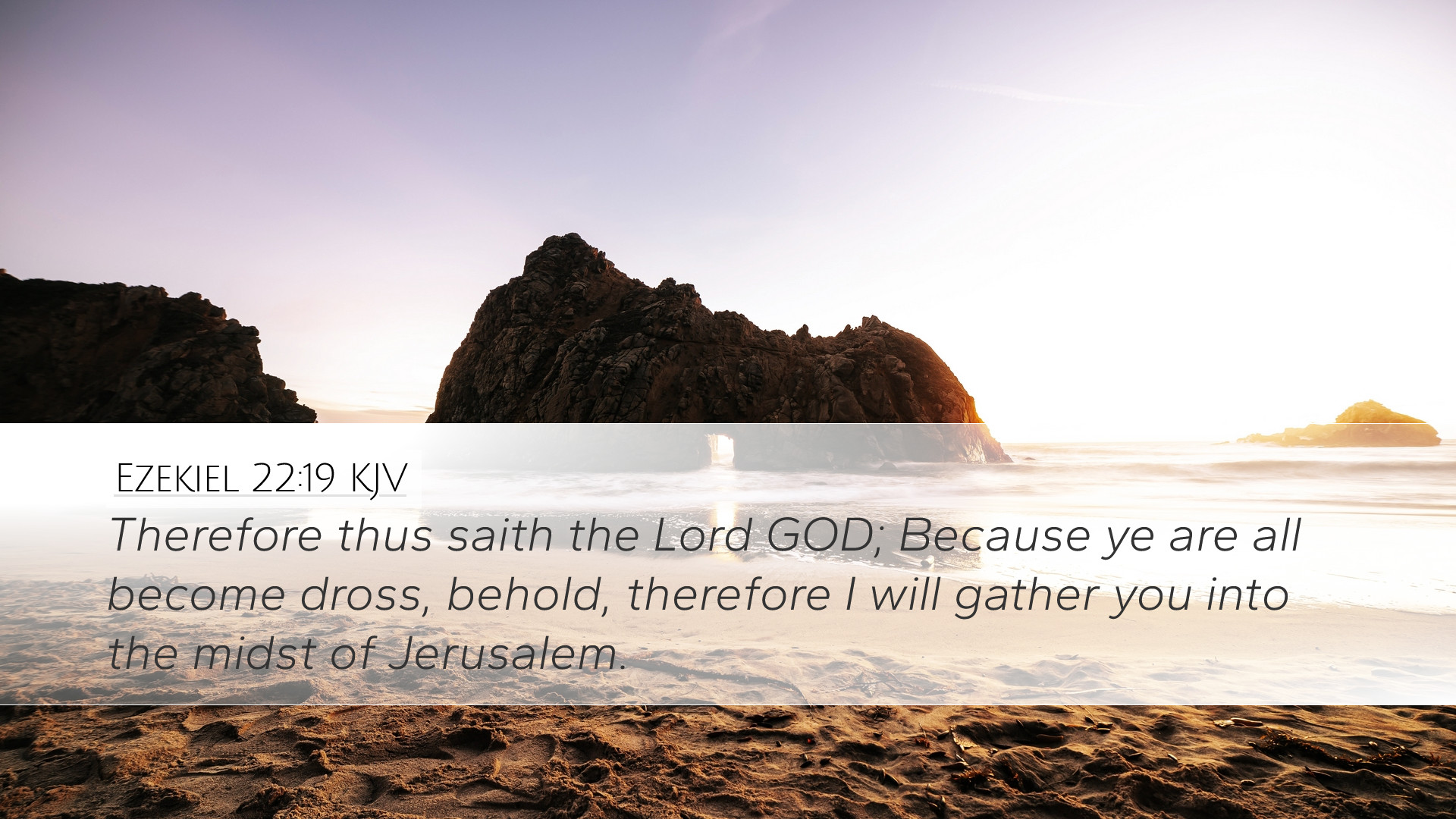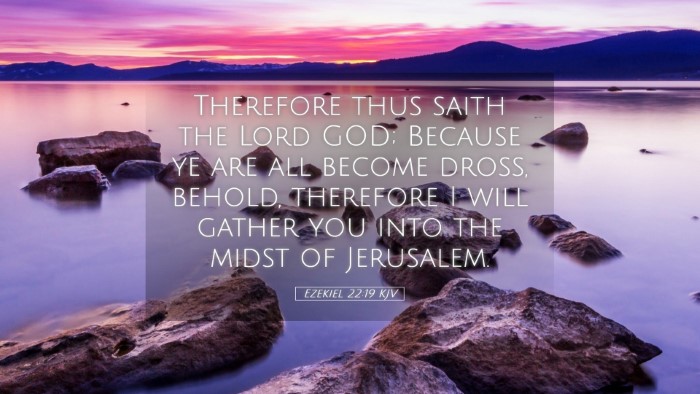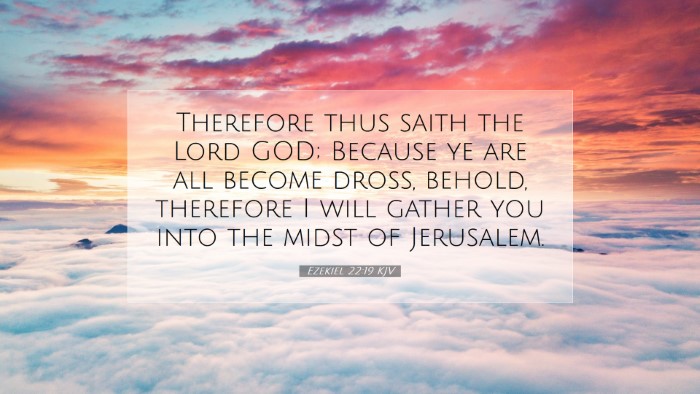Ezekiel 22:19 - Commentary Summary
Bible Verse: "Therefore thus saith the Lord; Because ye are all become dross, behold, therefore I will gather you into the midst of Jerusalem."
Contextual Background
The book of Ezekiel is primarily written during the Babylonian exile of the Israelites, a time marked by God's judgement against His people for their unfaithfulness. Chapter 22 serves as an indictment of the city of Jerusalem and depicts the moral decay and corruption of the people. This particular verse highlights a pivotal moment of God's judgement, where He equates the citizens of Jerusalem to 'dross,' signifying their worthlessness due to their sinfulness.
Thematic Insights from Commentaries
-
Matthew Henry's Commentary:
Henry emphasizes the analogy of 'dross,' which refers to the waste material removed from metals when refining. He notes that this metaphor illustrates how the people have become spiritually useless and are worthy of destruction. The divine gathering mentioned reflects God's intention to bring them to account for their actions, warning that judgment is imminent.
-
Albert Barnes's Notes:
Barnes underscores the significance of God's declaration. He remarks that God's gathering of the people is not for reconciliation but for judgement—indicating a serious confrontation with their sins. This gathering serves as a precursor to the inevitability of divine justice, predicted by prior prophetic messages.
-
Adam Clarke's Commentary:
Clarke offers a nuanced view on the implications of 'dross.' He posits that it serves as a stark reminder of how the children's choices resulted in a loss of their value in God's sight. Clarke explains that God’s call for accountability must serve as a sobering wake-up call to the faithful, emphasizing the need for repentance and restoration to worthiness through divine grace.
Theological Reflections
This verse serves as a rich ground for theological reflection, particularly on themes such as divine judgement, human moral failure, and the possibility of restoration. The notion that a community can devolve into 'dross' urges pastors and theologians to consider the moral fabric of contemporary society. How can one become spiritually useful again?
The imagery used in Ezekiel 22:19 also opens discussion on the process of purification. Just as dross is removed from precious metals, similarly, the process of divine refinement often involves trials and tribulations. It prompts an exploration of how suffering can be a tool for spiritual awakening and improvement.
Application for Today
For pastors and church leaders, Ezekiel 22:19 is a serious call to examine the church and society as a whole. Are we contributing to the spiritual deterioration likened to 'dross'? This verse invites an introspection on the values we promote within our congregations. It serves as a warning against complacency and sin within the body of Christ.
For students of the Bible, this text offers profound lessons on accountability and the need for collective repentance. Understanding the historical context enables deeper comprehension of the text’s significance, shaping a well-rounded theological perspective.
Conclusion
The stark imagery of Ezekiel 22:19 challenges believers today to consider the weight of their collective sinfulness and the consequences that arise from it. Through the combined insights from Matthews Henry, Albert Barnes, and Adam Clarke, this commentary provides an enriched understanding of the themes of judgment and redemption, underlining the constant need for vigilance against moral and spiritual decline.
As we reflect upon this text, may we be driven toward deeper accountability, robust repentance, and a renewed commitment to living lives that reflect God's glory.


